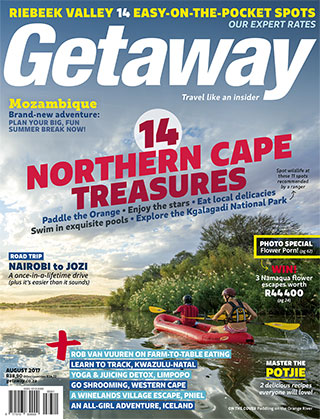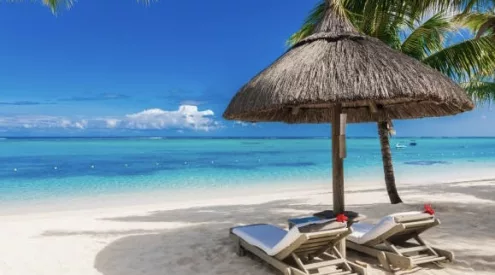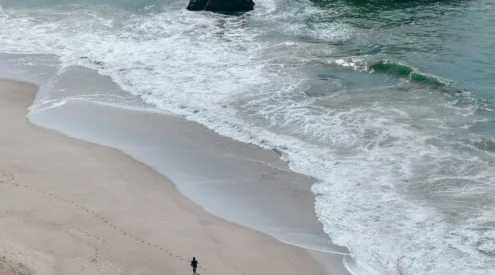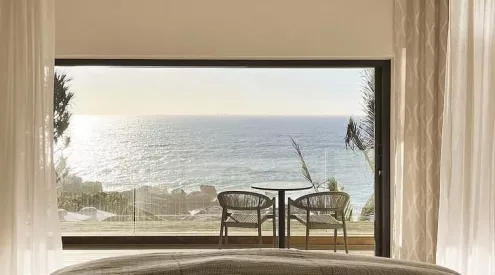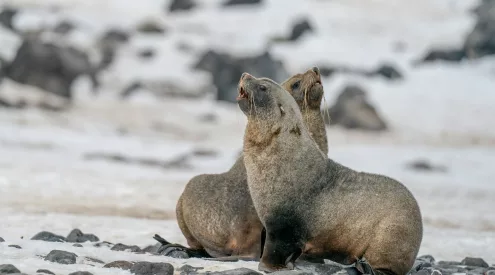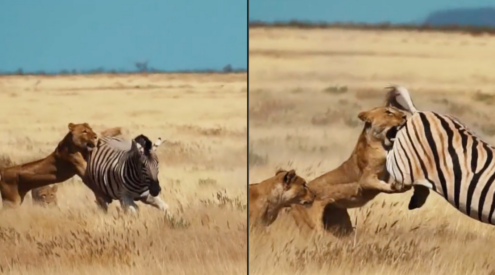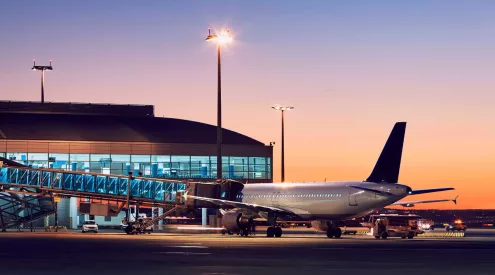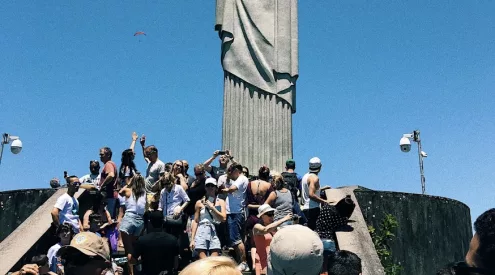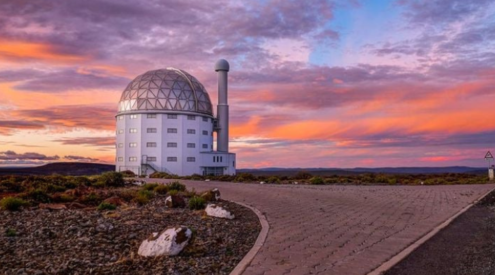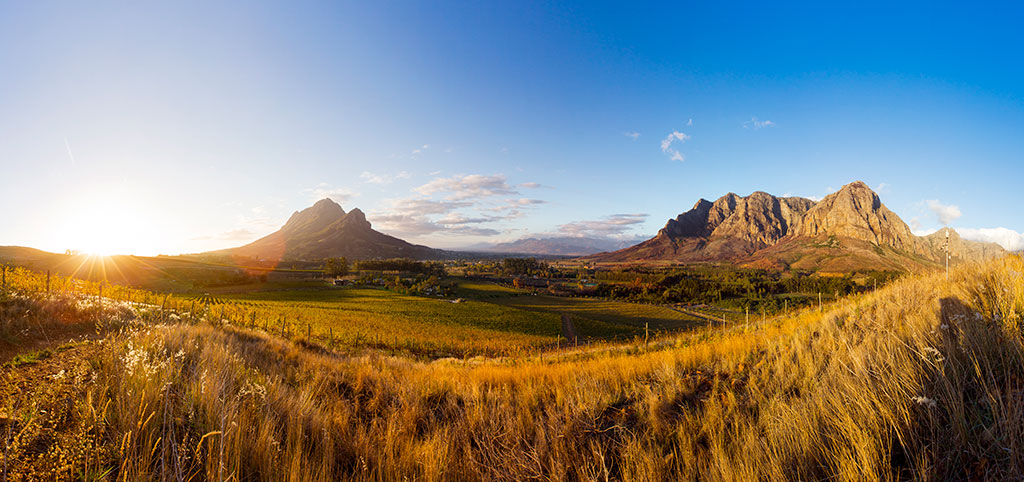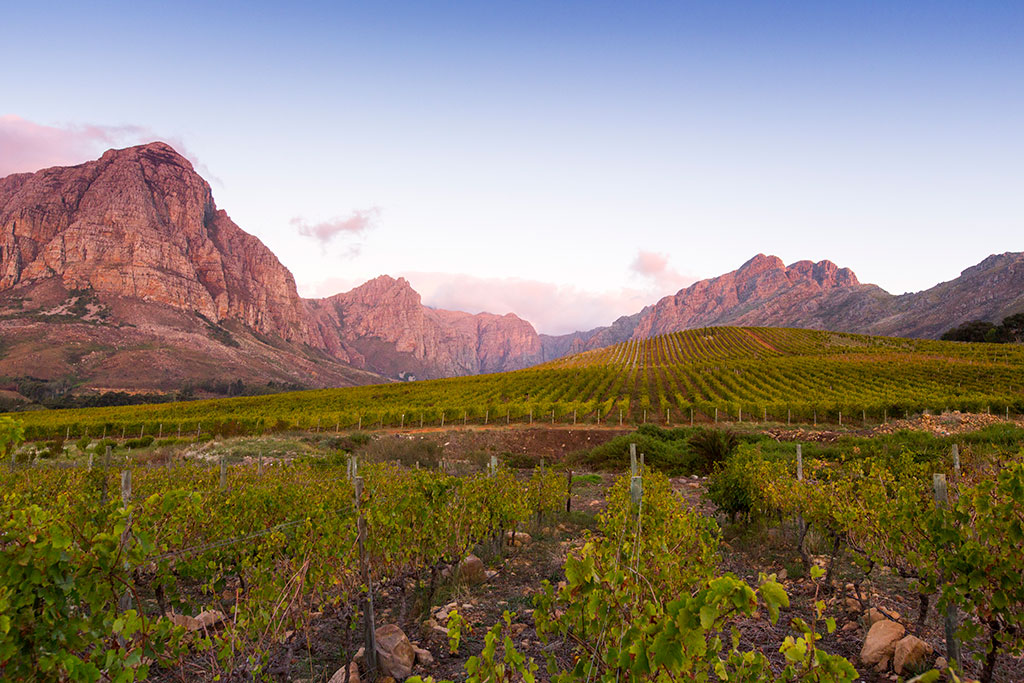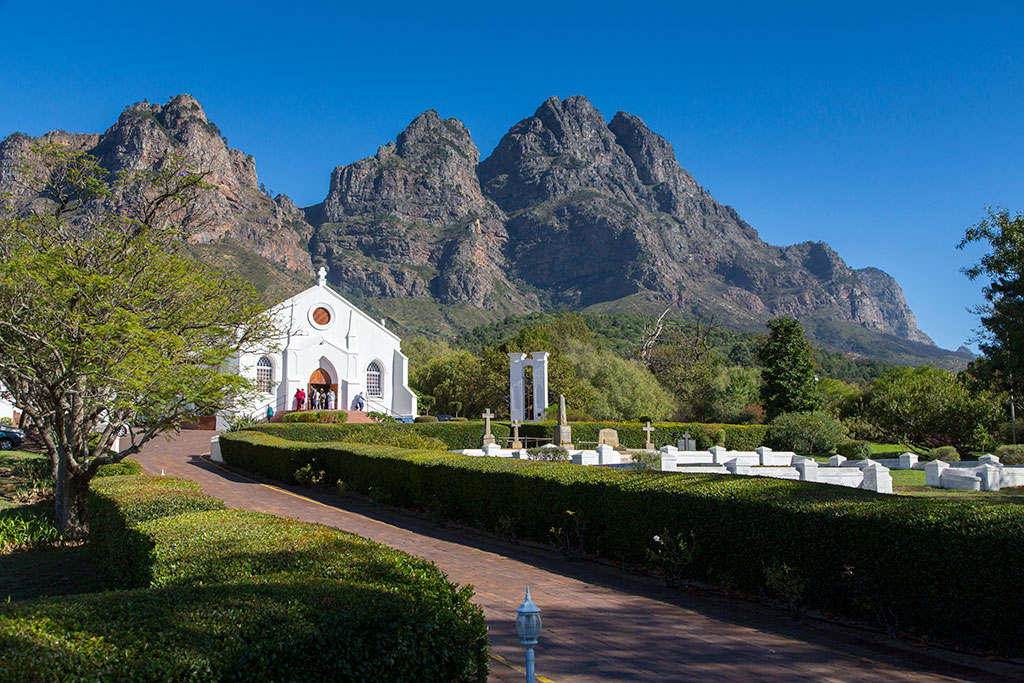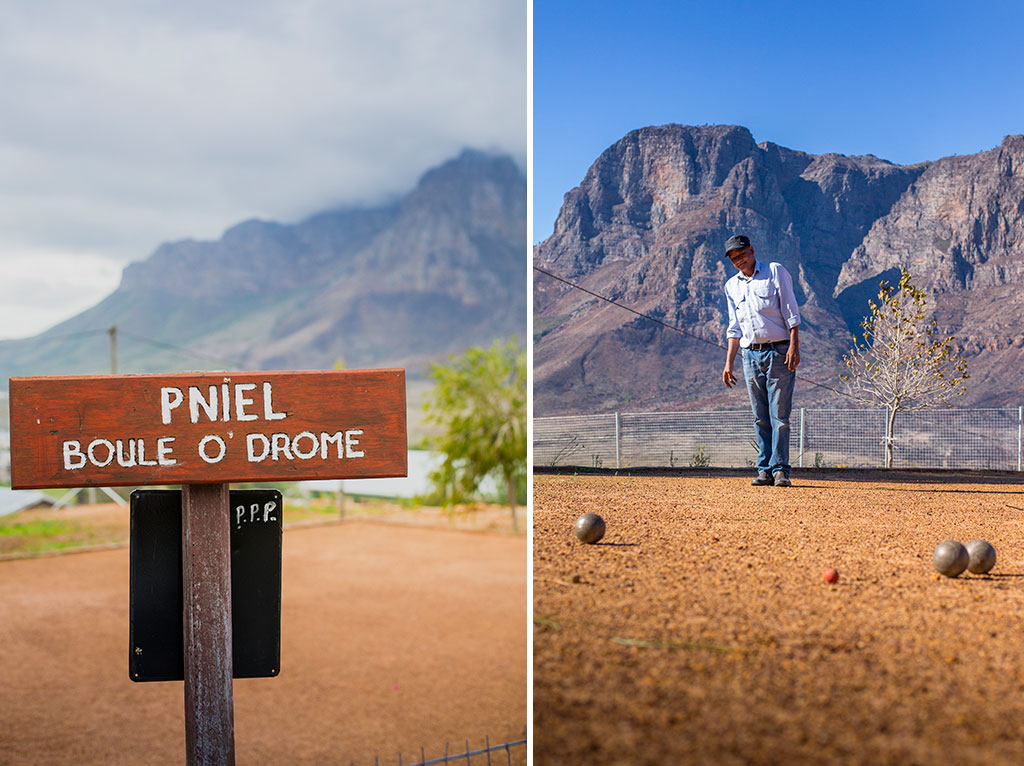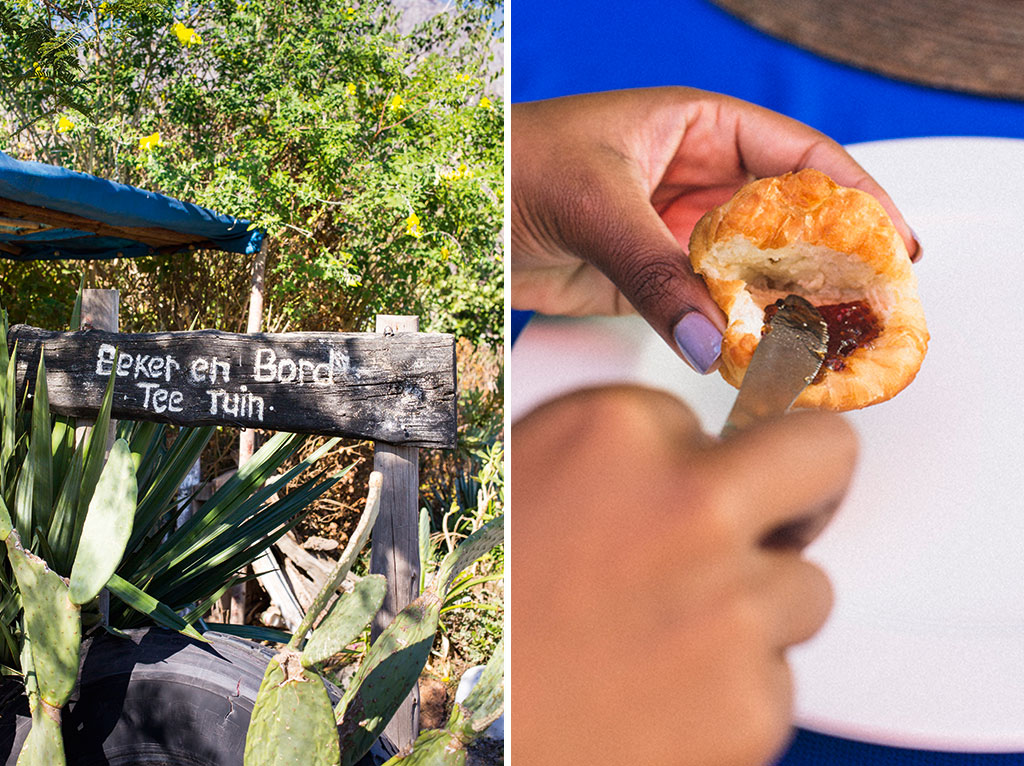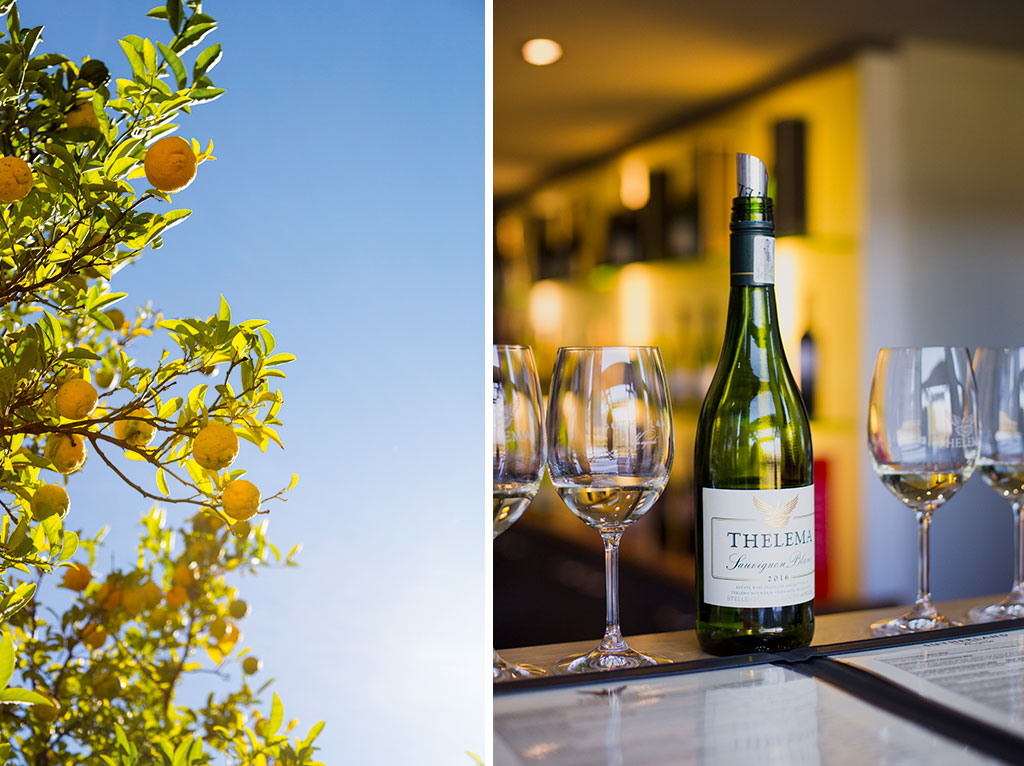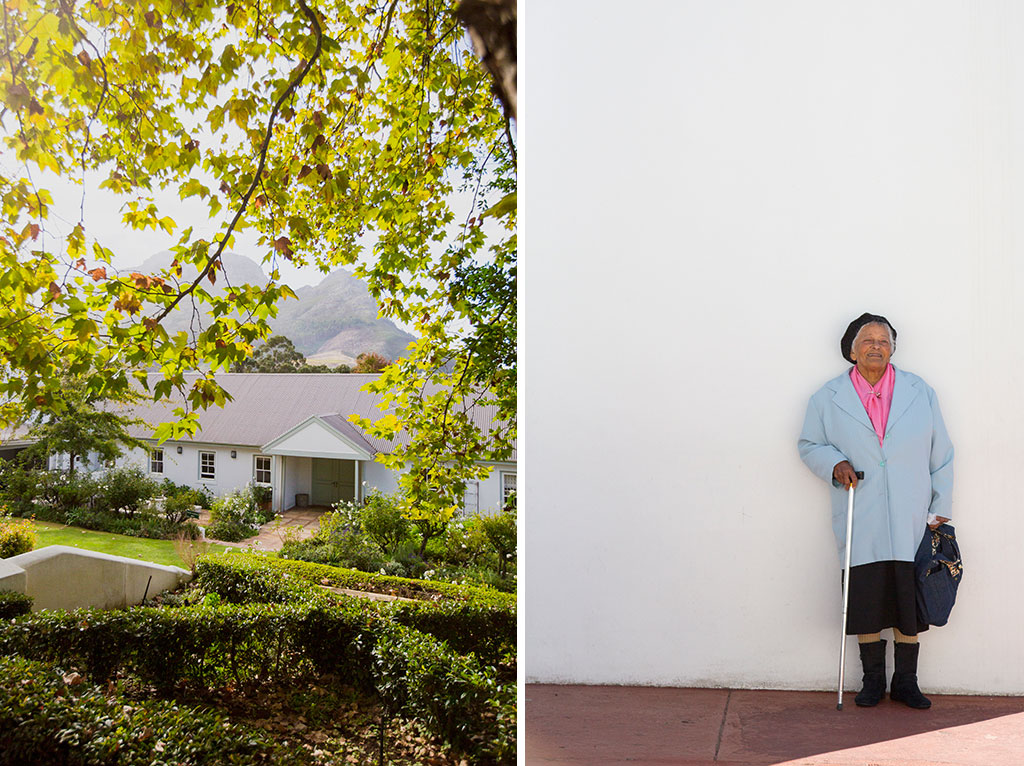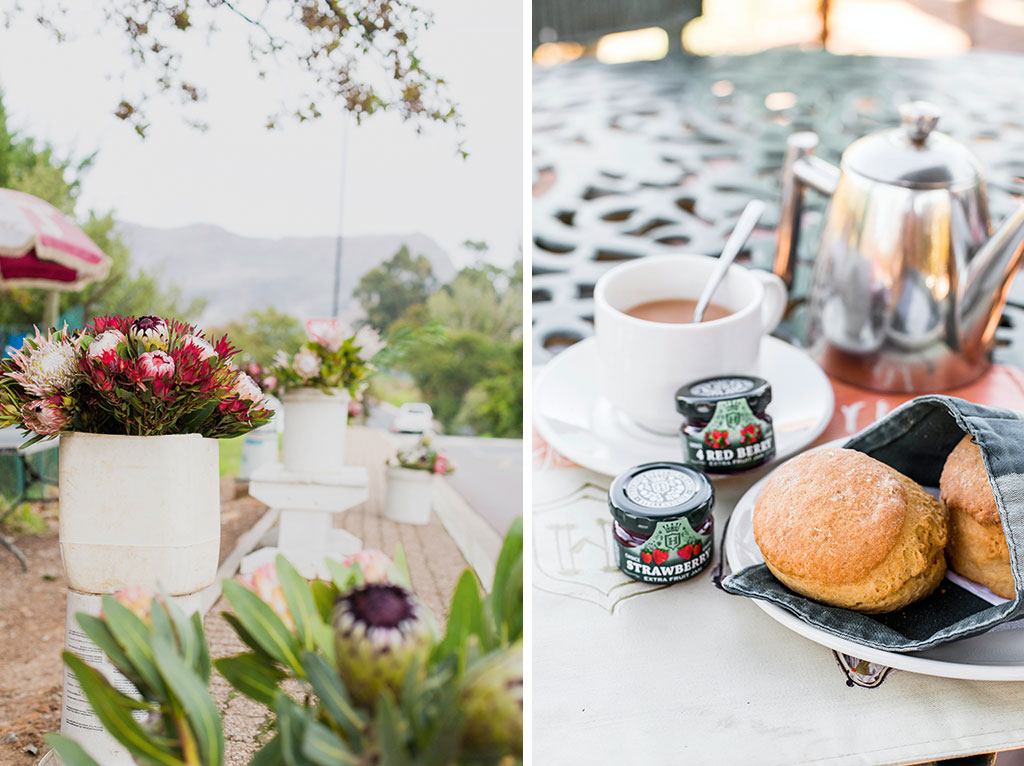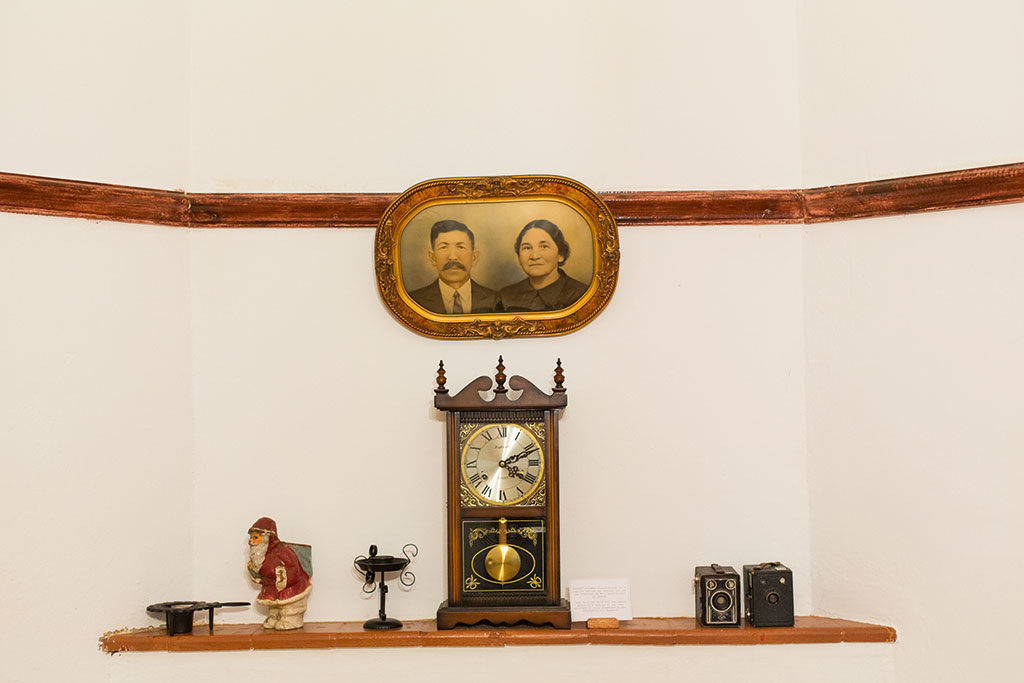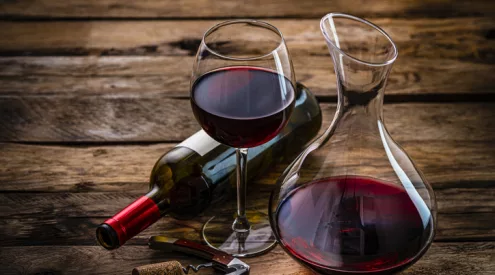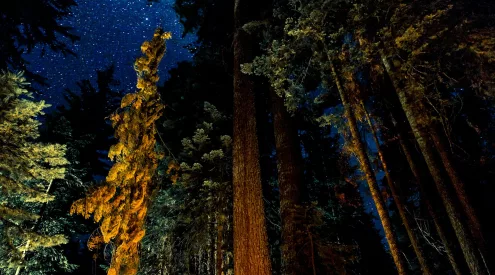Pniel is a small town in the Cape Winelands known by few. Its locals believe it’s something special. I went to find out why.
The insider: Retired teacher Matthew Cyster is now the chairman of the Pniel Heritage and Cultural Trust. He’s spent 72 years in Pniel and is passionate about the future of the village.
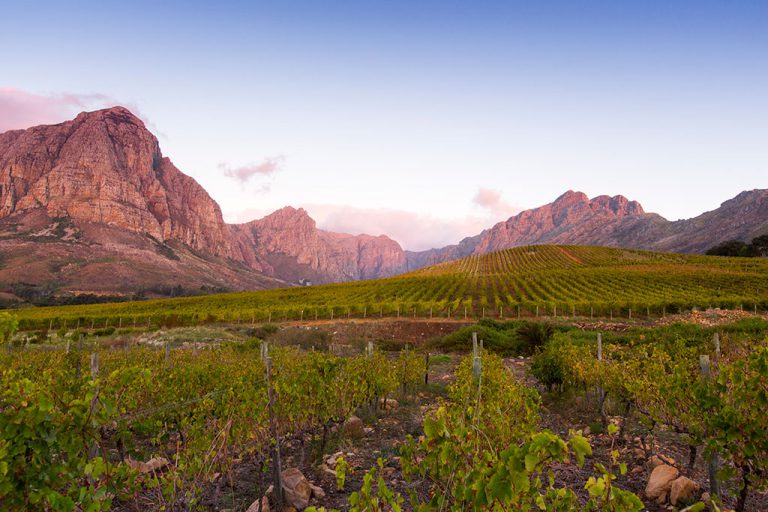
The sun sets over the Dwarsrivier Valley. Photo by Teagan Cunniffe
To begin, let me tell you where Pniel is: it’s that little village on the R310 between Stellenbosch and Franschhoek. Blink and you’ll miss it. But had you kept your eyes open, you might have seen it and wondered: what is this place? Who lives here? And how, exactly, do you pronounce Pniel? (It’s Pin-yel, like Israel, and it means ‘face of God’).
Pniel is a delightful little place. The houses have no fences; unguarded laundry flaps in the wind. Photographer Teagan Cunniffe and I are here to meet Matthew Cyster, who has lived here his whole life. He’s 72 and tells me he isn’t the oldest in the village; there’s a woman who beats him by more than a decade – Rebecca Jafta is 88. She has also lived in Pniel her whole life.
‘I was born here in 1945, raised here and will probably die here,’ says Cyster. ‘It’s been an amazing journey.’ As a boy, he and his friends would go exploring in the mountains and to the Dwarsrivier (Dwars River) to pick peaches and Santa Rosa plums – the town was surrounded by orchards then, many now replaced by vineyards. Later, he was involved in activism and freedom fighting at Bellville College (now the University of the Western Cape).
‘It was confusing for my young mind. I would always say to my friends, if any of us from Pniel become anything in life, it will be because of the discipline and love we received growing up here.’
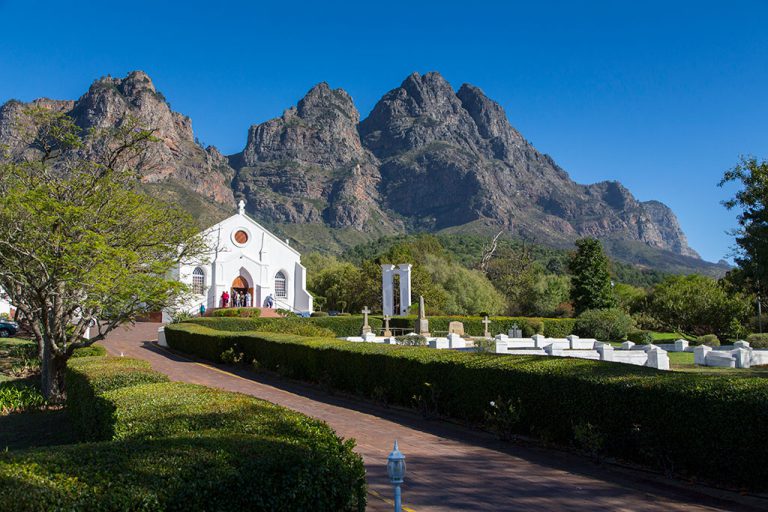
The largest building in town, Pniel Congregational Church, is dwarfed by the Simonsberg behind it. Photo by Teagan Cunniffe
His passion for and pride in Pniel is evident. As headmaster of the local primary school, he was able to guide a new generation of youngsters. He is retired but his work is now the town he loves. ‘I’ve been involved in the storytelling of the heritage and culture at the Pniel Museum.’ He and his colleagues have written a book called Pniel en Sy Mense. The older generation is determined to empower the youth. They and their forefathers have always held education in the highest regard.
‘In the past few decades, women could pursue occupations. I have respect for our women in Pniel, the generation who raised us and sacrificed so much for us to be where we are today,’ he says. ‘You can’t find a better place to raise children than here. Neighbours become family, the whole community is family.’
I cross the road towards the church and see an elderly woman pick up a piece of paper from the ground. This explains why it looks so well kept. The Pniel Congregational Church is at the core of the village, and religion still plays a major role in the lives of many locals. Pniel was originally established as a mission station in 1834 for recently freed slaves. All the properties in the village were owned by the church and houses were passed down in families, not sold to outsiders. In the past, Pniel had its own management board, they collected their own taxes and looked after their own roads and water system.

Antiques displayed in the Pniel Museum, which also documents the village’s proud sporting history. Photo by Teagan Cunniffe
Sport also plays a huge role in the community. The Pniel Sports Ground (next to the primary school) is where most of the action takes place: pigeon racing, karate, pétanque, cricket, netball and rugby. Especially rugby. They started playing the game here more than 100 years ago, back in 1902, and even the women of the town play. The local team is called the Pniel Villagers. They’ve won several trophies, and the town has produced a number of national sporting greats – rugby stars Trevor Adams and Ivor Myburgh back in the 1960s; Henry Davids, who plays for the Titans, and Henry Williams, currently coaching the Boland cricket team. The Pniel Museum has all the memorabilia won on display.
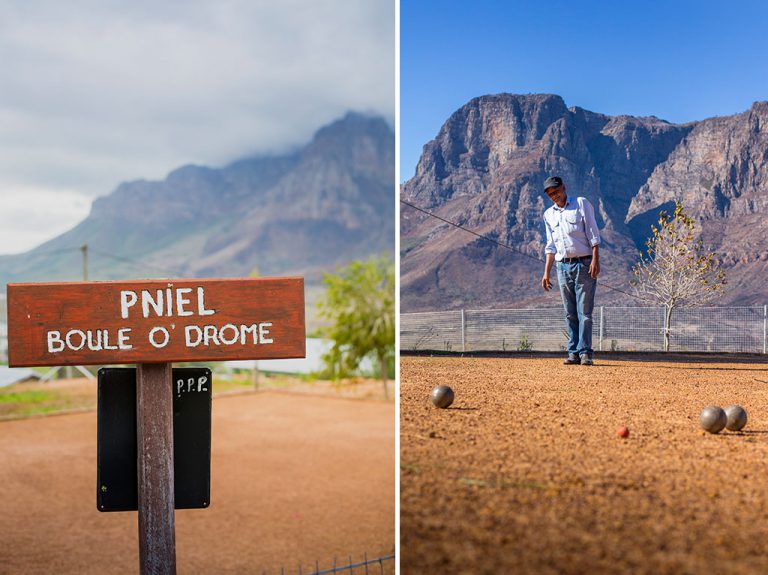
Petanque is loved and played by many in the village. Henry Lackay, pictured here is the chairman of the Petanque Club. Photo by Teagan Cunniffe
After a quick game of pétanque, we head off to Kylemore, a two-minute drive from Pniel, for a meal at Aunty Siena’s house. It’s wonderful to be in her home – a place filled with love and warmth, and beautifully decorated. She serves us delicious chicken curry and rice; for dessert, her koeksisters and vetkoek leave me wanting more.
It’s the last day. The sun is shining and the locals, young and old, greet happily from their homes as we drive up Kloof Street. The Simonsberg creates the perfect backdrop, and Brandon Robyn, who works on a nearby fruit farm, is taking us for a hike up the mountain. We start just by the reservoir. He tells us about how long ago in 1743 farm labourers went in search of silver deposits on the mountain, and in the process dug up caves. Sadly, no treasure was found.
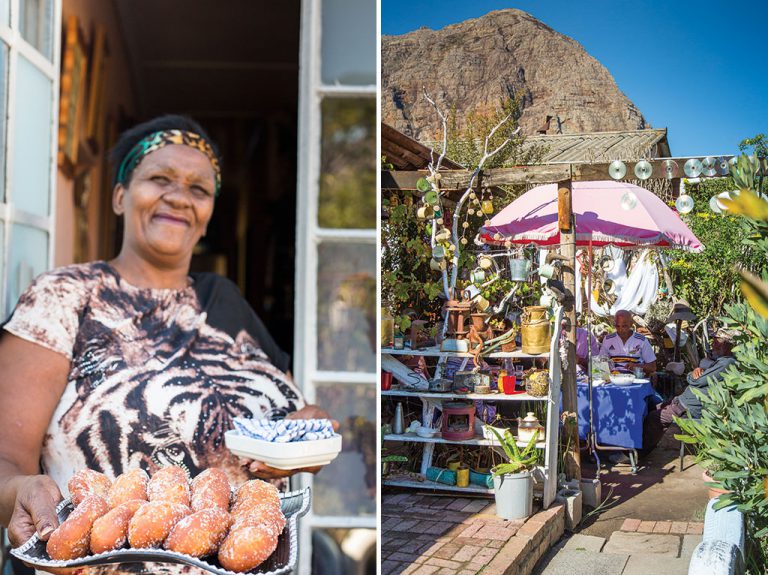
Aunty Siena’s restaurant serves South African classics, delicious Malay-style koeksisters. Photo by Teagan Cunniffe
At the top we are able to survey the entire beautiful valley, with its four side- by-side villages – Pniel, Kylemore, Johannesdal and Lanquedoc. We’re lucky enough to be up here to catch flocks of racing pigeons swooping past on a practise flight. Matthew had told us he hoped the village could be preserved for the next generation to experience its scenic surroundings, culture and unity.
I think about how these ‘Pnielers’ have made us feel included and welcome; their hearts and doors open. There’s a sense of freedom in the village, not only for those who live here but the ‘inkommers’ (visitors) too. Pniel has great tourism potential – I hope the Street Art Competition will create interest in this sincere town. It’s a sleeping beauty just waiting to be woken.
Look out for…
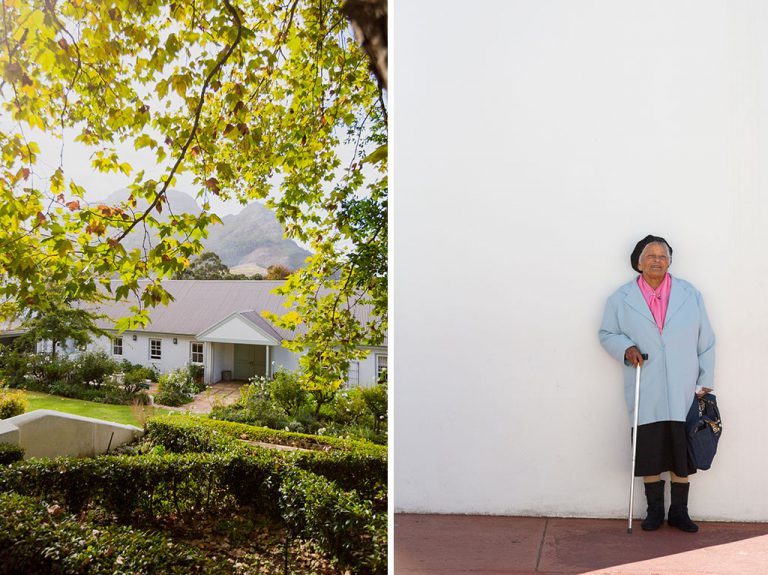
Camberley Wine Estate; Ouma Rebecca Jafta dressed smartly for church- the elderly residents of Pniel have their own service on the first Wednesday of the month, after which they have soup and socialise. Photo by Teagan Cunniffe.
The Street Art Competition is the first of its kind in the Dwarsrivier Valley. The focus will be on graffiti, and street art tours will be conducted after the competition. The aim is to get the youth excited about and involved in the future of tourism here.
The Pumpkin Festival takes place during harvest time, around March. It features giant pumpkin weigh-ins and carving contests, live music, local crafts and food.
The Dwarsrivier Tourism Mobile App (free on Android and iOS) gives the latest events and news from the village.
Where do the locals go?
Doreen Carolissen, marketing manager of Dwarsrivier Tourism
‘My favourite place in the valley is Solms-Delta wine estate. Every year they host the ATKV Oesfees festival. I enjoy relaxing there with my family.’
Brandon Robyn, logistics manager at Rhodes Fruit Farm
‘My daughter and I love going hiking on the Simonsberg Mountain. We go up to the Silvermine caves. We love to be in nature.’
Malcolm Johnson, community councillor
‘I just enjoy taking casual strolls in Pniel village.’
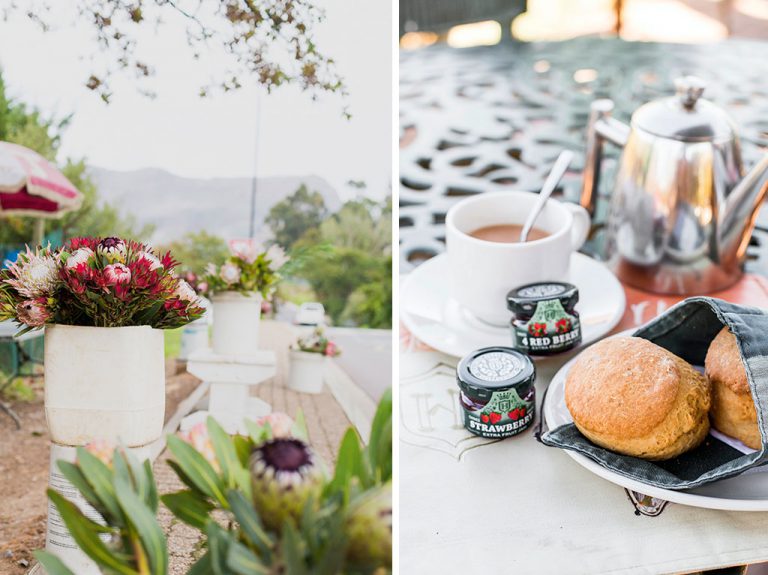
Proteas are sold on the Helshoogte Pass by a local vendor for R60 a bunch; Tea and scones from Hillcrest Berry Orchards. Photo by Teagan Cunniffe.
Plan your trip to Pniel
Getting there
From Cape Town, take the N2 then Exit 33 to Stellenbosch. Turn right onto Polkadraai Road to continue on the R310. After 13 kilometres you will arrive in Pniel. Don’t blink!
Good to know
Carry cash as most places don’t accept cards.
Stay here
Lumley’s Place has four en-suite rooms with individual names and themes. The B&B has beautiful mountain views, a lawn area and Wi-Fi. R500 per person B&B.
Hillcrest Berry Orchards has two neat, spacious cottages tucked away at the bottom of the garden, sharing a pool. They sleep up to five, are equipped for self-catering and linen is provided. From R480 per person sharing (minimum two-night stay).
Do this
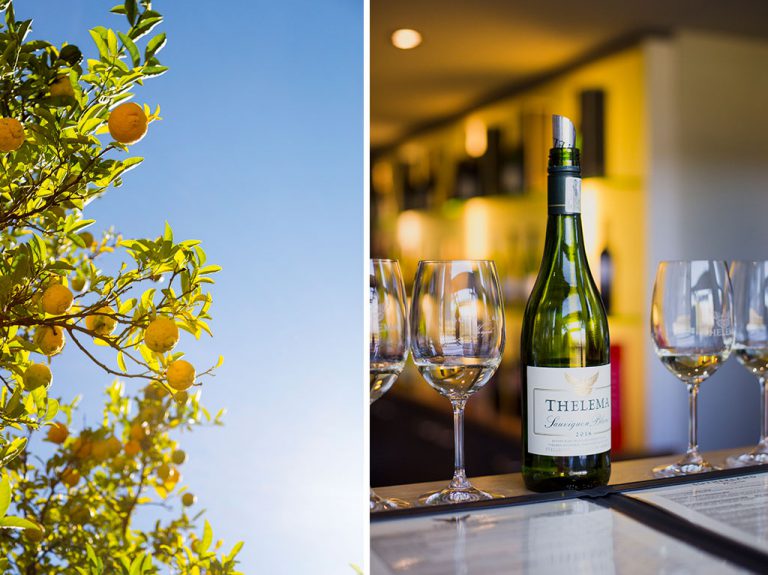
Locals grow and sell lemons at markets in Cape Town and Stellenbosch; Mint Cabernet Sauvignon from Thelema Mountain Vineyards. Photo by Teagan Cunniffe.
Taste the Mint Cabernet Sauvignon at Thelema Mountain Vineyards. Take the scenic Helshoogte Pass (R310 from Stellenbosch). Other wine farms close by include Tokara, Zorgvliet and Bartinney. Tastings at Thelema are weekdays 9:00 – 17:00 and Saturday 10:00 – 15:00. R50 per person for six wines. Tel 0218851924.
Visit Pniel Congregational Church. There is only one church building in Pniel (built in 1843) shared by different denominations. Helshoogte Road. Tel 0218852645.
Learn about the town’s history at the Pniel Museum. It’s housed in the original Huguenot farmhouse from the 1700s, and filled with ordinary household items that show how the locals used to live. Entrance is free. Helshoogte Road. Tel 0218852645.
Take a stroll or bike ride through the village. It’s quaint and an easy walk or cycle. Bicycles can be hired for R200 per person from Faith4U Tours. 44 Rooi Street. Tel 0787089427.
Hike up to the Silvermine cave on the Simonsberg Mountain, where farm labourers went in search of riches, with Brandon Robyn as your guide. The hike is free but a tip is welcome. If you’re brave enough, you can go into the cave. Tel 0795610370.
Buy proteas from Joe Japhta, the vendor on the Helshoogte Pass. From R60 for a bunch of gorgeous king proteas.
Shop at Imbali Crafters (based at the high school) in Kylemore, six kilometres from Pniel. The non-profit organisation supports job creation in the community by teaching skills such as sewing, beadwork and quilt making. Tel 0218851887.
Play pétanque (also known as boules) with the famous Pniel pétanque team champions at the 2016 Franschhoek Bastille Festival champions. From R50 per person. Call David Williams to arrange a game. Tel 0787089427.
Eat here

Lunch like a local at Aunty Siena’s. Photo by Teagan Cunniffe.
Beker en Bord Tee Tuin Enjoy wholesome and authentic South African food cooked by Aunty Siena. A three-course meals costs R120 per person. 39 School Street. Tel 0789129604.
Hillcrest Berry Orchards is a good spot for breakfast, lunch or afternoon tea. Scones and muffins are freshly baked and there’s a choice of jams – including blackcurrant, raspberry, Cape fig and walnut and four red berries (buy some to take home). Tea and scones from R45. Four kilometres from Pniel on the R310. Tel 0218851629.
The Werf Restaurant at Boschendal serves ethical, sustainably grown farm-to-table dishes. Starters from R80, mains from R180. It’s about three minutes’ drive from Pniel. Booking essential. Helshoogte Pass. Tel 0218704272.
Read the story in the August 2017 issue of Getaway magazine.
Our August issue features 14 Northern Cape treasures, a trip along Mozambique’s pristine beaches on a fat-bike, holidays to take if you want to learn a new skill and so much more.
